- Home
- Patricia McLinn
Reaction Shot (Caught Dead in Wyoming, Book 9) Page 3
Reaction Shot (Caught Dead in Wyoming, Book 9) Read online
Page 3
I suspected doughnuts were also in Shadow’s future.
Chapter Five
I broke the silence in Diana’s truck cab once we’d cleared town.
“What was that look for when I was talking with Tamantha about her suitcase?”
“Mmm. Thinking about Tamantha, how she’s growing up. The bag’s a good sign, but…” She cut me a look. “Being extraordinary’s not necessarily easy. Especially at her age.”
“You mean being accepted by other kids? She doesn’t seem to have trouble there. If anything, she’s a leader.”
“Yes, she is. On the other hand, I’ve seen with my two a period when what kids accept as ‘normal’ shrinks. Happens at the same time their self-confidence plummets. It opens up later, thank heavens. Now, there Tamantha won’t have any trouble. In the meantime, small shifts in her — let’s call it style — could make that narrower period easier for her.”
“Her style? You think Tom getting her to wear something other than old jeans and older sweaters would ease her way?”
“I don’t think Tom would have a clue.”
Her emphasis made me edgy, though she had a point. Beyond a couple decent suits, he was strictly utilitarian.
“He dresses okay for what he does,” I said. “So does she. I mean, jeans and sweaters are practical for her.”
“You said old jeans and older sweaters a second ago. In fact, she’s a not-yet fourth-grader wearing mom jeans and grandma sweaters.”
“If anyone can pull off the look, it’s Tamantha.”
“The point is, should she have to? Do you want her to have to?”
My answers to her spoken questions were easy.
No, she shouldn’t have to if she didn’t want to.
No, I didn’t want her to have to if she didn’t want to.
Then came my question in response to her unspoken statement that I should do something about it.
Why me? How am I supposed to take care of this?
Maybe Diana didn’t catch that internal bleat, because she continued. “Do you want her to be dressing like this in middle school? Tom’s gun-shy, what with Mona…”
Tamantha’s mother and Tom’s ex-wife, now deceased, had fancied herself a fashionista. In that and other ways, she had not provided a model any who cared about Tamantha wanted the girl to follow.
Belatedly, my bleat burst out as, “Well, I’m not the one to get him to change. Or her. What will probably happen if I try to guide her is I’ll start wearing mom jeans and grandma sweaters.”
“She is strong-minded. As we just saw.” She looked over at me with the last sentence.
“Yeah, I know. Tamantha manipulated me.” Then a much more cheerful thought than being outmaneuvered by a not-yet fourth-grader struck me. “Maybe I let her because deep down, I want to see what’s going on.”
“Of course you want to see what’s going on. Though it had nothing to do with what happened. Do you want to know where you went wrong?”
“Turning around when she said my name?”
She chuckled. “Not quite. You did well when she proposed all of us going to the grazing association. But then she distracted you from your first, blanket No by dividing the blanket into pieces. No, she couldn’t go to the grazing association. No, she couldn’t stay alone. Even as you said no to those, you implicitly said yes to your going to the grazing association, to leaving her with somebody. Step by step, she got you to where she wanted you to be — right here, on your way to the grazing association.”
I swore. “She should be negotiating in the Middle East.”
“Oh, this was pretty basic kid tactics.”
“I’m a patsy? Is that what you’re saying? Why didn’t you stop it? Why didn’t you save me?”
“Because I wanted to go with you to the grazing association. Notice I didn’t volunteer to look after her.”
I gave her a look of admiration. “I never realized you were that sneaky.”
My phone rang.
“Thank you,” Diana said modestly. “Aren’t you going to answer? I thought you were past dodging your parents.”
What was this? Hit Elizabeth Margaret Danniher With the Truth Day?
In fact, I hadn’t dodged my parents. Not lately. They had stayed with me for three and a half days before heading farther west for Yellowstone Park.
We’d had a good visit. A very good visit.
We’re not a family that feuds or fusses, but I often experience internal tension in the company of my parents and older siblings. Love isn’t the issue. Neither is liking. It all stems from their seeing me as a nine-to-thirteen-year-old (depending on their mood) not overly blessed with common sense and me seeing myself as a passably functioning adult.
There’d been far less of that tension in my parents’ recent visit than I’d experienced before.
One evening, Diana hosted a cookout at her ranch house, where Mom and Dad met a lot of my Wyoming friends. We went to the Sherman rodeo and had chocolate pie at the Haber House Hotel dining room another evening. They connected with my next-door neighbors, Iris and Zeb.
Oh, and they petted, treated, and fussed over my adopted stray dog, Shadow. In further proof he was putting his antisocial ways behind him, he lapped it up.
Mom and Dad would stay with me another few days — duration not yet specified — after Yellowstone and before their drive back to Illinois.
I looked forward to their return, tamping down any uneasiness over whether the outbound visit had been a fluke.
“It’s not my parents.” Score a point for honesty that I didn’t try to deny I had, at some points since my arrival in Sherman, dodged them. “It looks like a station number. Not one I recognize.”
“Maybe it’s Thurston, calling to apologize. Or Les, calling to assign you to cover the murder.”
The second possibility was as unlikely as the first. Les Haeburn, officially the station’s news director, spent more of his time placating Thurston than directing the newsroom. He largely left me alone, since my new contract from last fall gave me considerable latitude.
With a smirk about Diana’s Thurston and Les speculations, I answered the phone.
“Elizabeth, it’s Jerry. You need to come to the station.”
“I’m sorry for walking out mid-interview and leaving you to deal with—”
“No problem. I want you to see something. Maybe I’m totally wrong, but… I think you need to see this, you and Mike. I couldn’t catch him in time or—”
“Jerry, I can’t get away. And I don’t know where Mike is.”
I’m not sure he heard that because he seemed to be involved in a conversation taking place in the background on his end.
He came back to say, “Okay, we have a solution. Might take a while.”
“Whatever works, Jerry. Thanks. I’ve got to go now. Thanks again.”
Chapter Six
Diana turned off the highway, then from one dirt road to an even rougher one, seemingly knowing where she was heading.
Much of Cottonwood County sat on the Jelicho Table, a stretch of relatively flat land, driest on the eastern edge where it blended into the semi-arid Bighorn Basin.
Ah, the Bighorn Basin. That presents issues to elevate the blood pressure of print journalists everywhere.
The sheep are Bighorn — one word. The county and town are Big Horn — two words. The sheep had no say, the town and county got to decide for themselves.
Then there are the mountains, river, and basin. Depending on the governmental source and, apparently, mapmakers’ whims, you’ll see either spelling, and sometimes both.
Broadcast journalists are fortunate — they sound the same.
However, we broadcasters get our come-uppance on the western end of Cottonwood County, where the Rocky Mountains, specifically the Absaroka Range, bring the Jelicho Table to a jagged conclusion.
Although more formal sources mostly divide between “ab-SOR-o-ka” and “ab-SOHR’-kuh” — with a whole lot of variation on how “O/Oh”
sounds — we have a persistent strain of “ab-sah-RO-kuh” pronouncers in our listening area.
No matter how I pronounced it, to some segment of our audience, I’d be the outsider who hadn’t bothered to learn local ways.
I do my best to not venture into such dangerous territory. So, what I viewed through the back window of Diana’s truck as we headed east across the Jelicho Table, those were the Rockies.
“Will we be at the grazing association soon?” I asked.
“We’re here.”
“That last turn? I thought there’d be a sign or something.”
“Two turns before. Expecting a sign like the one at the country club? Maybe landscaping with a rock wall? It’s not that kind of group. Only the land matters.”
“They lease?”
“Not much. Most associations have some deeded land, this one is almost all deeded. They don’t like being subject to lease prices rising.”
Before I could ask more, we came to the end of an extensive line of vehicles, nearly all pickups, parked along the dirt track.
Not something I would have expected before my move here, but those pickups provided information.
Pickups, like cowboy boots, fall into classes in Wyoming.
There are very few of the fashion statement type — which is mostly what you see in cities, especially east of the Mississippi.
Then there are Sunday-best pickups, saved for plan-ahead occasions. Vehicles that leave from their starting point shined up, even if they seldom reach their destination in that state. It can take a trained eye to distinguish fresh dirt or mud on a recently shiny vehicle from the long-standing variety, but it’s quite clear to Wyomingites. It can be a social solecism to arrive to some functions with old dirt, while fresh dirt is perfectly acceptable.
The next variety — the working pickup — goes to town for business or casual pleasure, never fancy. Old dirt is perfectly acceptable. If these trucks are clean it’s because it happened to be time for that chore.
On the bottom — perhaps the most important — rung are the ranch trucks, so-called because they seldom left the ranch. Their dirt is old and honorable, as are their rust, scratches, scrapes, and screeching doors. They’re battle-scarred warriors, afraid of nothing, even if, at times, they aren’t able to get out of situations their willing spirit and optimistic drivers get them into.
As Diana and I started walking forward from where we’d parked, we passed mostly ranch trucks.
Except at a roundup or helping with branding, the people of Cottonwood County didn’t usually congregate in ranch trucks. They kept their beasts-of-burden ranch trucks on their ranches … carrying burdens.
But what brought them here had been so urgent their owners stopped work, jumped in their ranch truck, and drove straight here.
Closer, we saw that inside this deep layer of ranch pickups sat a bevy of official vehicles, mostly SUVs, with trucks and vans sprinkled in.
It took getting closer still, past where the curve of a slight swell of land had masked them, to see two more pickups — one working and one a ranch truck.
The working truck bore the name Lukasik Ranch on its green door. The other had no name on it, but I recognized its faded, dented, and pummeled blue surfaces from scoping it out as a potential shield from imminent gunfire last year.
Fun times in Cottonwood County.
As we cut through the ranks of parked pickups, shifting that swell of land to a new angle to reveal more behind it, my attention skidded past the two isolated pickups to an unexpected sight.
A square house to our right.
The structure itself wasn’t that surprising, though its solitary situation here, amid what even I recognized as grazing land, was.
Carrying ghost traces of once white paint on its walls and porch, it resembled the last outpost of a deserted civilization. The pyramidical hipped roof sagged at one seam. The symmetrical windows to either side of the front door glinted with glass, the one on the side of the building we could see was boarded up.
The surprise was a riot of roses growing around the house, up the walls and over the porch, like a fairy tale rose thicket to protect — or imprison — the princess. They stubbornly bloomed in a true red far darker than the pink wild roses I knew from growing up in Illinois.
I admired their courage, at the same time they made me sad.
At some point someone carefully planted these bushes for the vibrant red and green against a white house. The white had mostly worn away. The red and green scraggled wildly.
And, now, in a further indignity, police tape attached to the post holding up the left end of the porch.
At that instant, a second unexpected sight drew my attention — the athletic stride of Mike Paycik, headed between scattered vehicles for us.
“What are you doing here, Mike?” Diana asked.
“Got a ride with Jenks after my interview ended.”
Past Mike, I saw KWMT-TV’s senior cameraman raise a hand in greeting, which we returned. Jenks hoisted his equipment bag — camera out and at the ready — and headed toward the police tape.
That explained Jerry’s reference to not catching Mike — he’d already left the station.
“Hoped I’d get to look around before you two got here, until Jenks said that had to be Diana coming up behind us like a bullet. You almost beat us here.”
She ignored the comment on her driving. “Glad the station’s on the story.”
“No thanks to Thurston. He turned the police scanner off again to get his beauty rest. Right after you two left for Tom’s, Pauly—” His part-time sports stringer. “—and I had to get on that interview. As it was, I got there a minute after the line opened and I thought Pauly would keel over from fear I wouldn’t show up. It wasn’t until after finishing the interview that I could tell Audrey about this.”
Distracted as I was, I asked, “How’d the interview go?”
It was a coup and it was important to Mike.
“Went well.” He grinned as he tipped his head, indicating we should follow the path Jenks had taken toward the activity. “Went real well. John was a little nervous at first, but we talked a couple minutes about Wyoming and connected about the weird stuff you encounter when you first leave.”
“Like escalators?” Diana said, touching on a past discussion.
“Hey. You know there are two in all of Wyoming, but—”
“I do know, since you told us.”
“—turns out John had been on both before going pro, so he was ready for the big leagues. Anyway, afterward, the team’s media guy called almost as soon as we’d finished, all excited, saying nobody else had gotten much of anything from John except Bull Durham cliché quotes — you know, We play them one game at a time and There’s no I in team. The media guy wants to get clips to their local network affiliate, maybe some other cities in the league, on their website, stuff like that. Haeburn will go along. It’s only sports.”
That last part was a credible imitation of our station manager.
“We’re not even going to run the whole interview until the weekend. I get snippets in the next few days.” Mike concluded, “You look confused, Elizabeth.”
“Not about any of that. It’s no less than I expected and when those other stations get a look at your work, they’ll be knocking at your door. No, don’t deny it. John’s not the only one ready for the big leagues.” Glancing toward the house again, I added, “But I am confused. I thought a grazing association was like a ditch.”
I’d learned about irrigation ditches and their importance to Wyoming, especially ranchers, as the conduit for essential irrigation. Also about organizations called ditch companies, which united the landowners who shared a ditch, and the ditch boss responsible for the water getting where it belonged.
From what I’d heard, grazing associations ran along similar lines, with a group of ranchers going together to buy or lease acreage for grazing — dividing costs and sharing benefits in the same proportion.
Thi
s house represented something I hadn’t expected, since all I’d heard about grazing associations was … well, grazing.
“Sort of similar,” Mike said. “What’s confusing?”
“Grazing associations have clubhouses?”
We cleared the last pickup as I gestured toward the house and the entire scene before us.
From its anchor on the house’s porch post, police tape extended toward our left, forming a large, lumpy off-limits oval. Within it, an expanse of screening blocked all view of an area about the size of a large pickup truck. Crime scene personnel came and went from behind the screen.
Everyone else’s attention focused toward that screening.
Everyone else included Shelton talking with Tom near a knot of law enforcement from multiple jurisdictions, judging from the variety of uniforms.
Another group, this one civilian, congregated well to our left, near where police tape enclosed those first two pickups in its thin, yellow arms.
My attention pulled away from the scene when Mike laughed, because that familiar sound had an unexpected edge to it.
He looked back in the direction we’d come, leaving me the back of his head to try to decipher the edge.
Diana glanced at him, perhaps she’d heard it, too. When she spoke, though, she gave no sign of it.
“It’s not a clubhouse, Elizabeth. This used to be part of a ranch. When the owner sold, he got more money selling parcels to various buyers than he would have for the place as a whole. This section wasn’t as sought after. The association got a good deal on the land. This house came with it. It’s used for supplies and such now.”
“How have the roses survived with nobody living here?” I wondered.
“There’s a spring — that’s why they picked this spot for the house.”
I expected local knowledge from Diana. But Mike, who’d been away playing college and pro football for a decade and a half, being the source for that information had me asking, “How do you know?”
I caught Diana taking another glance at him.

_preview.jpg) Almost a Bride (Wyoming Wildflowers Book 1)
Almost a Bride (Wyoming Wildflowers Book 1)_preview.jpg) Prelude to a Wedding (The Wedding Series Book 1)
Prelude to a Wedding (The Wedding Series Book 1)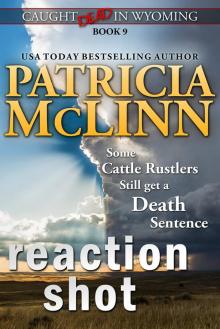 Reaction Shot (Caught Dead in Wyoming, Book 9)
Reaction Shot (Caught Dead in Wyoming, Book 9)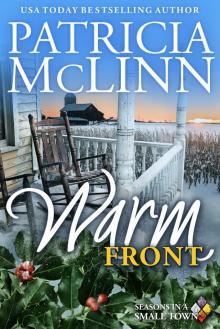 Warm Front
Warm Front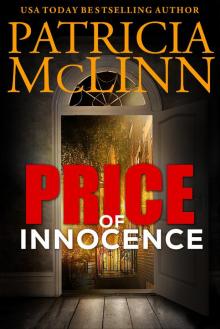 Price of Innocence
Price of Innocence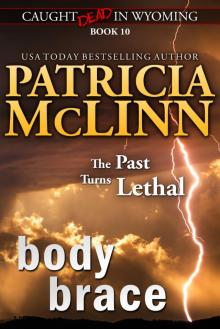 Body Brace (Caught Dead in Wyoming, Book 10)
Body Brace (Caught Dead in Wyoming, Book 10)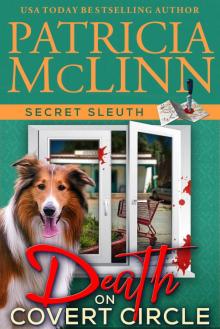 Death on Covert Circle
Death on Covert Circle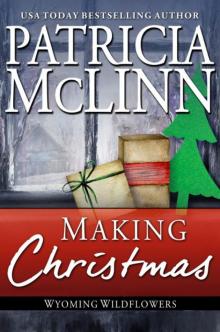 Making Christmas
Making Christmas Death on Torrid Ave.
Death on Torrid Ave.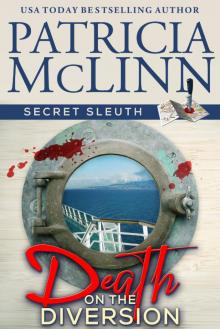 Death on the Diversion
Death on the Diversion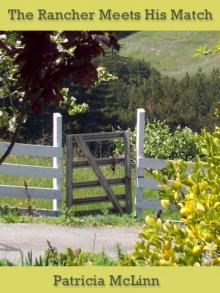 The Rancher Meets His Match
The Rancher Meets His Match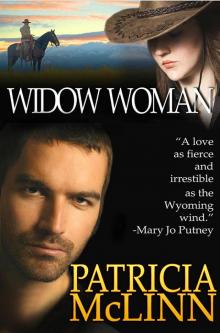 Widow Woman
Widow Woman The Runaway Bride
The Runaway Bride Hoops
Hoops A Stranger in the Family (Book 1, Bardville, Wyoming Trilogy)
A Stranger in the Family (Book 1, Bardville, Wyoming Trilogy)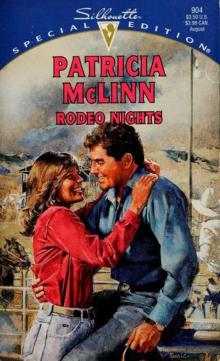 Rodeo Nights
Rodeo Nights Wedding Series Boxed Set (3 Books in 1) (The Wedding Series)
Wedding Series Boxed Set (3 Books in 1) (The Wedding Series)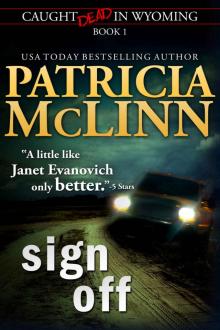 Sign Off (Caught Dead in Wyoming, Book 1)
Sign Off (Caught Dead in Wyoming, Book 1) Prelude to a Wedding
Prelude to a Wedding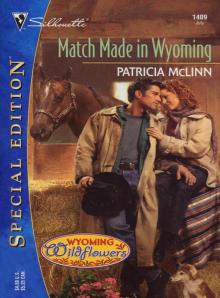 MATCH MADE IN WYOMING
MATCH MADE IN WYOMING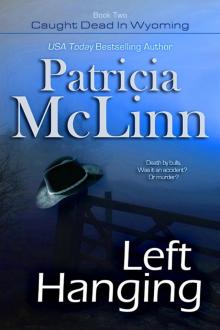 Left Hanging
Left Hanging What Are Friends For?
What Are Friends For?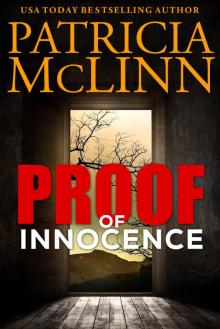 Proof of Innocence
Proof of Innocence Hidden in a Heartbeat (A Place Called Home, Book 3)
Hidden in a Heartbeat (A Place Called Home, Book 3) Baby Blues and Wedding Bells
Baby Blues and Wedding Bells Least Likely Wedding?
Least Likely Wedding? Heart Stealers
Heart Stealers Grady's Wedding
Grady's Wedding Right Brother
Right Brother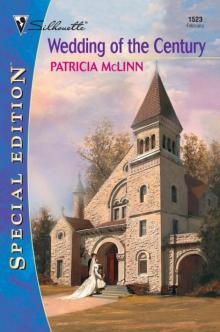 Wedding of the Century
Wedding of the Century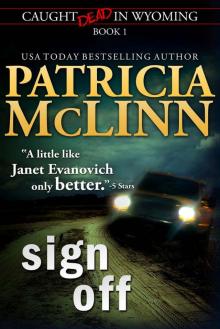 Sign Off
Sign Off The Surprise Princess
The Surprise Princess Wyoming Wildflowers: The Beginning
Wyoming Wildflowers: The Beginning